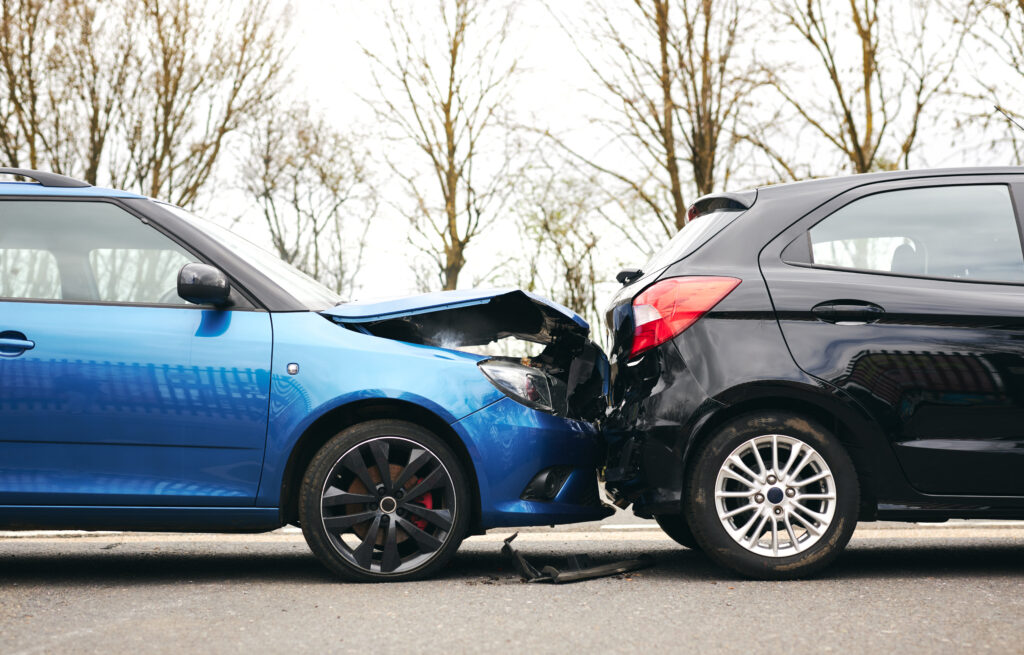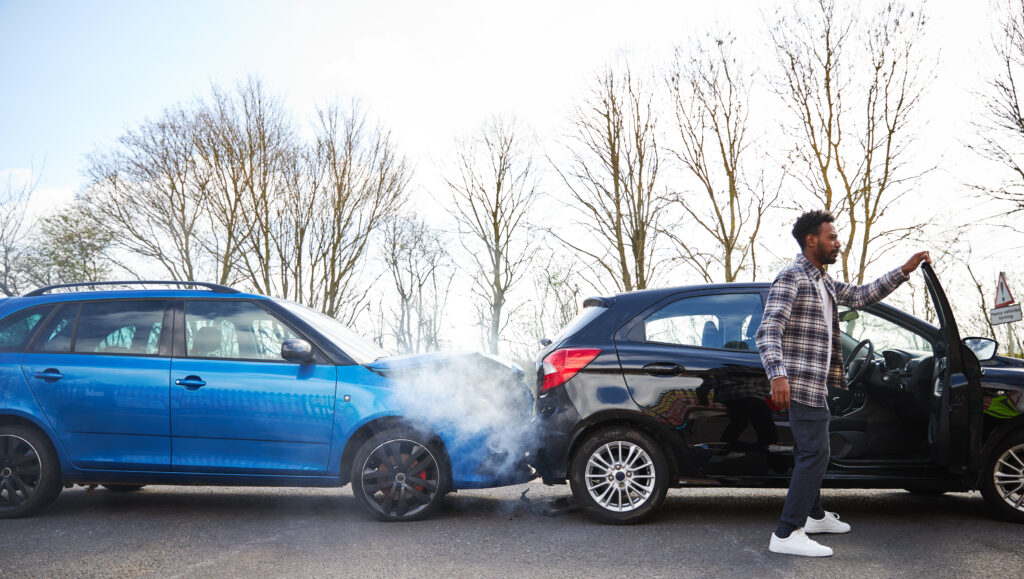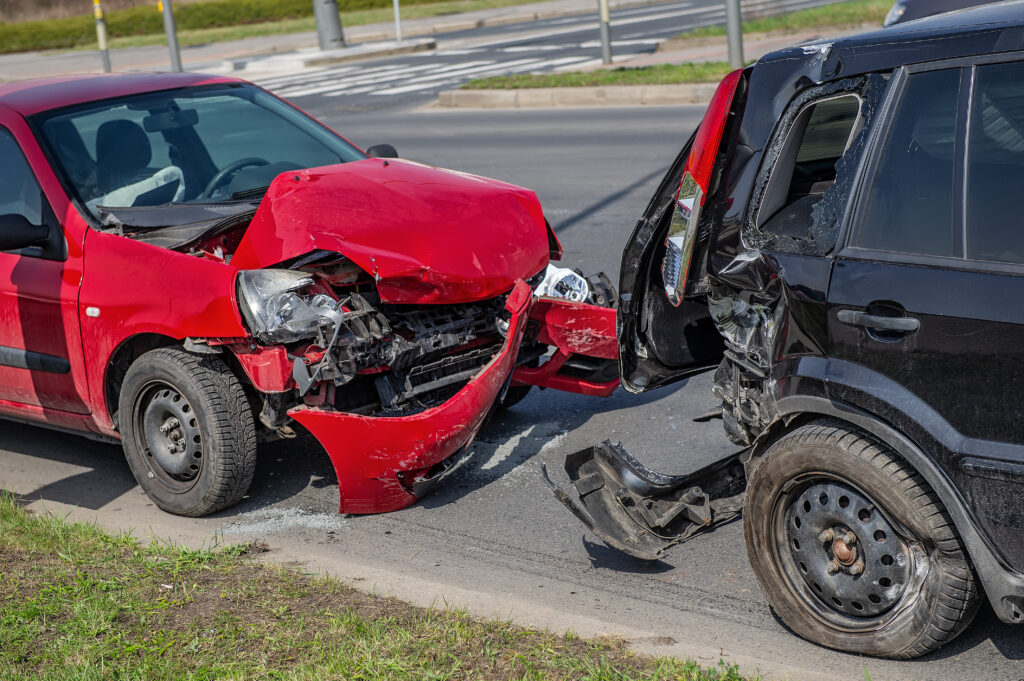Rear-end accidents are one of the most common types of car accidents that occur on the roads today. They can lead to serious injuries and costly damages, leaving victims dealing with physical, emotional, and financial burdens. When determining fault in a rear-end accident, many people assume that the driver who rear-ended the other vehicle is always at fault. However, the reality is not always so straightforward.
In this blog post, we will explore whether the rear driver is always at fault in a rear-end accident and shed light on the factors that influence fault determination. Understanding these factors is crucial if you are involved in a rear-end collision and must navigate the legal process to seek compensation for your damages.
To ensure you receive the compensation you deserve following a collision, always have a knowledgeable attorney by your side. An experienced attorney can take the lead in pursuing damages for your medical bills and other losses.
Whether you were the front or rear driver, seek a legal consultation with a car accident attorney in Brooksville today if you believe the other driver was to blame.
Causes of Rear-End Collisions
Rear-end collisions are one of the most common types of car accidents that can happen on the road. While it is often assumed that the driver who rear-ends another vehicle is always at fault, this is not always the case. To determine who is at fault, it is essential to understand the possible causes of rear-end collisions and how they can impact liability.
One of the main causes of rear-end collisions is distracted driving. With the rise of smartphones and other electronic devices, drivers are more prone to taking their eyes off the road to check their messages or scroll through social media. A split second of distraction can lead to a rear-end collision if the driver fails to notice the vehicle in front of them coming to a sudden stop.
Another common cause of rear-end collisions is tailgating. When a driver follows too closely behind the vehicle in front of them, they leave very little margin for error if the leading vehicle stops suddenly. This can result in a rear-end collision if the driver cannot brake in time. Tailgating is not only reckless but also increases the chances of a rear-end collision occurring.
Poor road conditions can also contribute to rear-end collisions. For example, if there is heavy rain or snow, the roads can become slippery, making it more difficult for drivers to stop in time. Reduced visibility due to fog or other weather conditions can also increase the likelihood of a rear-end collision. Additionally, if roads are poorly maintained, such as having potholes or uneven surfaces, it can make it harder for drivers to maintain control of their vehicles, leading to accidents.
Another factor that can contribute to rear-end collisions is driver fatigue. When a driver is tired, their reaction time and ability to focus diminishes, increasing the likelihood of a rear-end collision if they fail to notice the vehicle in front of them slowing down or stopping. Fatigue can impair a driver's judgment and decision-making skills, making them more susceptible to causing accidents.
While it is a common presumption that the driver who rear-ends another vehicle is always at fault, this is not always the case. Understanding the various causes of rear-end collisions, such as distracted driving, tailgating, poor road conditions, and driver fatigue, is crucial in determining liability.
If you find yourself involved in a rear-end collision, seek the guidance of a knowledgeable car accident attorney who can navigate the complexities of the legal system and pursue the compensation you deserve. They know that accidents are not always what they seem initially and can investigate to determine liability.
Reasons Why the Front Driver Might Be to Blame for a Rear-End Crash
When it comes to rear-end accidents, many people automatically assume that the driver in the rear is at fault. While this is often the case, it is not always so clear-cut. There are situations where the front driver may bear some responsibility for the collision, and here are some reasons why the front driver might be to blame for a rear-end crash.
One possible reason is sudden and unexpected braking by the front driver. If the front driver slams on their brakes without any warning or valid reason, it can catch the following driver off guard and lead to a collision. In these situations, the responsibility may shift to the front driver for creating an unsafe situation by braking abruptly.
Another factor to consider is the front driver's failure to use proper signals or indicators. If the front driver fails to use their turn signals or brake lights, it can be difficult for the following driver to anticipate their actions. This lack of communication can result in the rear driver being unable to react in time, leading to a collision. In such cases, the front driver may be partially responsible for the accident.
Additionally, distracted or negligent driving by the front driver can contribute to the accident. In today's technology-driven world, it is all too common for drivers to engage in activities that take their attention away from the road. Whether it is texting, talking on the phone, or even eating, any form of distraction can lead to a rear-end collision. If you can prove that the front driver was negligent at the time of the accident, they may be at fault.
It is worth noting that these examples are not exhaustive, and each rear-end accident is unique. The determination of fault in a rear-end collision depends on the specific circumstances and evidence presented. If you have been involved in a rear-end accident and believe that the front driver may share some responsibility, always consult with an experienced attorney. A skilled lawyer can gather the necessary evidence, navigate the legal process, and advocate for your rights.
While the general assumption is that the rear driver is at fault in a rear-end accident, there are situations where the front driver can be held partially responsible. Sudden braking, failure to signal, and distracted driving are some examples of how the front driver's actions can contribute to a collision. If you find yourself in such a situation, seek the advice of a knowledgeable attorney who can guide you through the legal process and seek compensation for your injuries and damages.
Common Injuries and Losses from Rear-End Accidents
Rear-end accidents are one of the most common types of car accidents, and they can result in various injuries and losses for those involved. In this section, we will explore some of the common injuries and losses that can occur in rear-end accidents and the importance of seeking legal assistance to protect your rights and seek compensation.
Whiplash
Whiplash is perhaps the most well-known injury associated with rear-end accidents. It occurs when the head is forcefully jerked back and forth, causing strain to the neck muscles and ligaments. Whiplash symptoms can vary in severity, often including neck pain, stiffness, headaches, and even cognitive difficulties. While whiplash may not always be immediately apparent, it can have long-lasting effects and may require ongoing medical treatment.
Back Injuries
The forceful impact of a rear-end collision can also cause injuries to the back. Herniated discs, sprains, and strains are common types of back injuries that can result in chronic pain, limited mobility, and decreased quality of life. Back injuries can be particularly problematic as they may require extensive treatment, including physical therapy, chiropractic care, or even surgery. These treatments can result in high medical expenses and loss of income due to missed work.
Head and Brain Injuries
In rear-end accidents, the sudden jolt from behind can cause the head to hit against the headrest or other objects inside the vehicle. This can result in various head and brain injuries, ranging from mild concussions to more serious traumatic brain injuries (TBIs). Head and brain injuries can have long-lasting effects, including cognitive impairments, memory problems, and emotional disturbances. Seeking immediate medical attention after a rear-end accident is crucial to identify and address any potential head and brain injuries.
Property Damage
In addition to physical injuries, rear-end accidents can also result in significant property damage. The force of impact can cause extensive damage to the rear end of the vehicle, including the bumper, trunk, or frame. Repairing or replacing a damaged vehicle can be costly, and it can cause significant financial strain, especially if the vehicle is the primary means of transportation for the individual involved.
Seeking Legal Assistance from a Car Accident Lawyer
If you have been in a rear-end accident, always seek legal assistance from a qualified attorney. An experienced personal injury attorney can help protect your rights and guide you through the complex legal process of seeking compensation for your injuries and losses. They can gather evidence, negotiate with insurance companies, and advocate for your best interests.
Rear-end accidents can result in a range of injuries and losses, including whiplash, back injuries, head and brain injuries, and property damage. It is crucial to seek legal assistance from an attorney who handles complex car accident cases. They can help ensure you receive the compensation you deserve and provide the necessary support during this challenging time. Remember, protecting your rights and seeking proper compensation is your right, and the guidance of a skilled attorney can make all the difference.
Battling Insurance Companies For Compensation
When it comes to rear-end accidents, there is a common misconception that the driver of the rear vehicle is always at fault. While it is true that in many cases, the driver of the rear vehicle is responsible for maintaining a safe following distance and avoiding collisions, there are instances where the fault lies with the driver of the leading vehicle or even a third party.
It helps to understand the process of battling insurance companies for compensation. Insurance companies will often try to minimize the amount they have to pay out, so it is essential to have a skilled attorney by your side who can advocate for your rights and fight for the fair compensation you deserve.
One of the main challenges in rear-end accident cases is proving fault. While it may seem straightforward that the rear driver is to blame, there are circumstances where the leading driver's negligence contributed to the accident. For example, if the leading driver suddenly and unexpectedly slams on their brakes without a valid reason, it may be considered negligent behavior. In this situation, the insurance company and their lawyers will likely argue that the leading driver shares responsibility for the accident.
Insurance companies often try to shift blame onto the victim and minimize their liability. They may use tactics such as downplaying injuries, disputing medical treatment, or questioning the extent of property damage. Without legal representation, it can be challenging to navigate the complex world of insurance claims and negotiations. However, with an experienced attorney on your side, you can level the playing field and ensure your rights are protected.
A skilled attorney will gather evidence, interview witnesses, and analyze the facts of the case to build a strong claim on your behalf. They will negotiate with the insurance company and fight for maximum compensation, taking into account medical expenses, property damage, lost income, and pain and suffering. If they cannot obtain a fair settlement offer, they will be prepared to take your case to trial.

A Car Accident Attorney is Waiting to Help
It is not always the case that the driver of the rear vehicle is at fault in a rear-end accident. If you believe you are not at fault and are navigating the process of battling insurance companies for compensation, your first step should be to seek legal representation. By having an experienced attorney on your side, you can protect your rights, fight for fair compensation, and ensure that justice is served.
Seek your free case evaluation today and begin seeking the compensation you deserve. Rear-end accidents can often be more complicated than they seem at first, so never forego the legal help you need.












